 Petzlover
Petzlover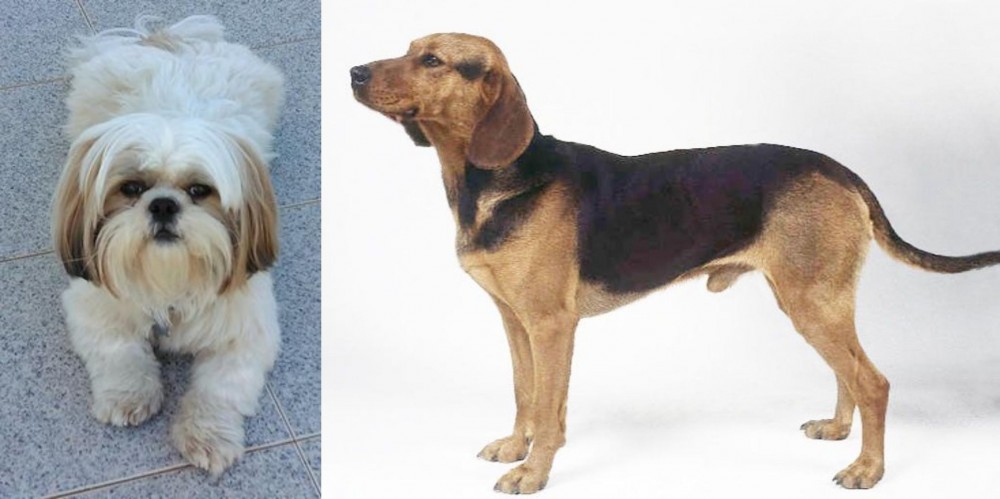 Shih Tzu is originated from China but Serbian Hound is originated from Serbia. Shih Tzu may grow 28 cm / 11 inches shorter than Serbian Hound. Shih Tzu may weigh 16 kg / 35 pounds lesser than Serbian Hound. Shih Tzu may live 6 years more than Serbian Hound. Both Shih Tzu and Serbian Hound has almost same litter size. Shih Tzu requires High Maintenance. But Serbian Hound requires Low Maintenance
Shih Tzu is originated from China but Serbian Hound is originated from Serbia. Shih Tzu may grow 28 cm / 11 inches shorter than Serbian Hound. Shih Tzu may weigh 16 kg / 35 pounds lesser than Serbian Hound. Shih Tzu may live 6 years more than Serbian Hound. Both Shih Tzu and Serbian Hound has almost same litter size. Shih Tzu requires High Maintenance. But Serbian Hound requires Low Maintenance
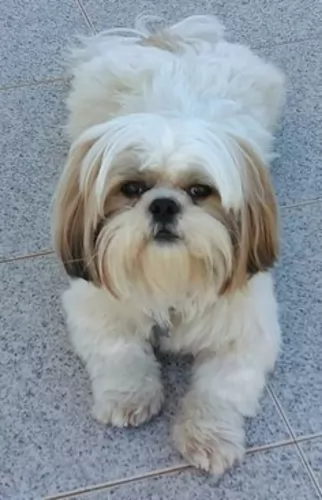 The Shih Tzu is an Imperial Chinese breed developed by palace breeders hundreds of years ago with breed stock from the Tibetan lines. It is quite probable that the Shih Tzu was originally a cross between two Sino-Tibetan ancient dogs – the Pekingese and the Lhasa Apso. Based on their looks, the Shih Tzu means the lion dog, but they were really very pampered palace dogs living with the Chinese emperors and families. The emperors were always gifting the breeders who developed the most affectionate, gentle and beautiful Shih Tzus.
The Shih Tzu is an Imperial Chinese breed developed by palace breeders hundreds of years ago with breed stock from the Tibetan lines. It is quite probable that the Shih Tzu was originally a cross between two Sino-Tibetan ancient dogs – the Pekingese and the Lhasa Apso. Based on their looks, the Shih Tzu means the lion dog, but they were really very pampered palace dogs living with the Chinese emperors and families. The emperors were always gifting the breeders who developed the most affectionate, gentle and beautiful Shih Tzus.
Until the 1930’s the Shih Tzu was not known to the world outside the emperor’s palace. Once the breed did come out from behind the palace walls, they were immediately popular. Much debate went on about how to refine the breed as clubs began to spring up in Peking and then in England. It was not until 1969 the Shih Tzu was recognized and entered in the AKC Stud Book.
While the original Shih Tzu might have been a mix between the Pekingese and the Lhasa Apso, today’s breed spread around the world after the second world war. In Europe in the 1930’s the breed was classified as Apsos. In 1935 the first Shih Tzu Club of Europe was formed, and the first standard was written, and the breed was categorized as the Shih Tzu.
Following World War II, soldiers brought the dogs to the States from Europe. By the 1950’s the breed was growing in popularity and the AKC recognized the breed in 1969 as members of the Toy Group. They are now recognized by all major kennel clubs throughout the western world. They are recognized by the Federation Cynoloqique Internationale in the Companion and Toy Group, among Tibetan breeds.
The Shih Tzu is a good watchdog, but it was bred to be a companion animal. It is a friendly, open breed that welcomes strangers. They are great with other animals and children as well as adults.
 Once known as the Balkan Hound, the Serbian Hound is a scenthound, an ancient dog breed that dates back to the 11th century. He has always been a hunting dog, hunting in packs, but today he is essentially a pet and a companion.
Once known as the Balkan Hound, the Serbian Hound is a scenthound, an ancient dog breed that dates back to the 11th century. He has always been a hunting dog, hunting in packs, but today he is essentially a pet and a companion.
Although the breed is very popular in Serbia, they have not spread much outside of the Balkan region. The first description of the Serbian Hound dates from 1905. The first standard for the dog was published in 1924.
This dog isn’t recognized by the AKC but he has been recognized by the FCI in 1940 and in 2006 by the United Kennel Club.
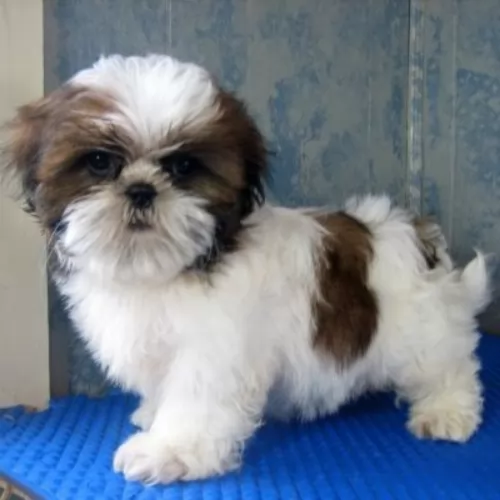 This is a breed of lively, sturdy and alert little dogs with a beautiful double coat that is flowing and long. In its full glory the Shih Tzu coat is touching the floor all the way around the dog. The dog’s bearing is as royal as its history, arrogantly carrying his head high and his tail curving over his back.
This is a breed of lively, sturdy and alert little dogs with a beautiful double coat that is flowing and long. In its full glory the Shih Tzu coat is touching the floor all the way around the dog. The dog’s bearing is as royal as its history, arrogantly carrying his head high and his tail curving over his back.
The Shih Tzu is a solid, compact breed with weight and substance. They may be a small dog, but they are a strong one. They have large dark eyes with a short muzzle and fur covered drop ears. They are just a little longer than they are tall with a distinct underbite.
There are a few differences between the European or UK Kennel Club standard and the American Kennel Club AKC standard. As opposed to the UK standard the AKC standard states that:
• The hindquarters are muscular while the front are straight. They are balanced in that they are not too long or too short.
 The Serbian Hound isn’t a particularly large dog. He is medium sized, standing at between 44 to 56cm in height and weighing in the region of 11 to 23kg. The coat of the dog is a red or tan color with a black saddle.
The Serbian Hound isn’t a particularly large dog. He is medium sized, standing at between 44 to 56cm in height and weighing in the region of 11 to 23kg. The coat of the dog is a red or tan color with a black saddle.
The hair is short, thick and shiny with the hair being slightly longer over the thigh area. The ears are high set, are of medium length and are floppy. The average litter size for these dogs is 3 to 6 puppies.
The good-natured Serbian Hound makes a loving and devoted pet. He’ll get on well with children too. They’re friendly dogs with a relaxed disposition, but to maintain that easy going characteristic, they will need to be well exercised.
They’re intelligent dogs with an independent side to them, and some training and socialization will be recommended.
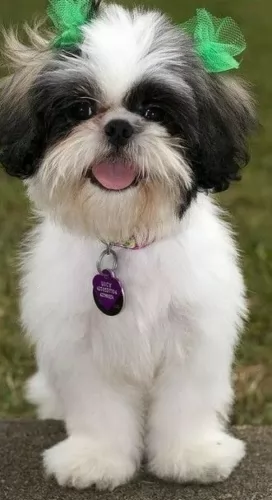 2.Special talents – they were bred to be companion animals. They are friendly and loyal.
2.Special talents – they were bred to be companion animals. They are friendly and loyal.
3.Adaptability Yes very much so. They can live in an apartment or on a farm. It doesn’t matter and they don’t need a yard.
 The Serbian Hound is a working dog that just loves being busy, and he can keep busy for a long time as he has plenty of stamina.
The Serbian Hound is a working dog that just loves being busy, and he can keep busy for a long time as he has plenty of stamina.
He is an easy going dog, laid back, social and lively as well as being loving and loyal. They’re independent and strong-willed as well as being intelligent. You shouldn't have any difficulty training and socializing him, and it will round your pet off nicely, making him an even better companion and pets.
 For many breeds that have the advantage of isolation like the Shih Tzu did with the emperors of China usually have very little genetic health issues. Most of the breed is indeed healthy but there are some issues.
For many breeds that have the advantage of isolation like the Shih Tzu did with the emperors of China usually have very little genetic health issues. Most of the breed is indeed healthy but there are some issues.
• Brachycephalic airway obstructive syndrome due to the shape of their face and head causes them to have breathing issues. They cannot handle heat and they cannot swim. They can have an upper airway obstruction that makes it hard for them to breath. If this is bad enough, surgery may be required.
• Hypothyroidism – thyroid does not produce the hormones necessary for metabolism to work effectively. This can lead to weight gain, hair loss, lethargy and muscle loss. It can be treated effectively.
• Issues of the eyes include – cataracts, corneal dryness and inflammation, progressive retinal atrophy, improperly closing eyelids and retinal detachment.
 Your Serbia Hound can live to be 12 to 15 years of age, but just like with other dogs, he will need to be watched for some of the common dog diseases there are. Cancer, bloat, skin infections and kennel cough are all diseases to look out for.
Your Serbia Hound can live to be 12 to 15 years of age, but just like with other dogs, he will need to be watched for some of the common dog diseases there are. Cancer, bloat, skin infections and kennel cough are all diseases to look out for.
Ear infections are common in dogs with floppy ears. You need to check inside your dog’s ears as an ear infection can be a painful condition. You’ll see your dog scratching at his ears and shaking his head.
Most ear infections are caused by bacteria and yeast or even ear mites. You can’t play around with an ear infection and the veterinarian will take a sample from the affected ear. Most people don’t like to fiddle around with the inner ear and prefer to leave this grooming part to the vet or a professional groomer.
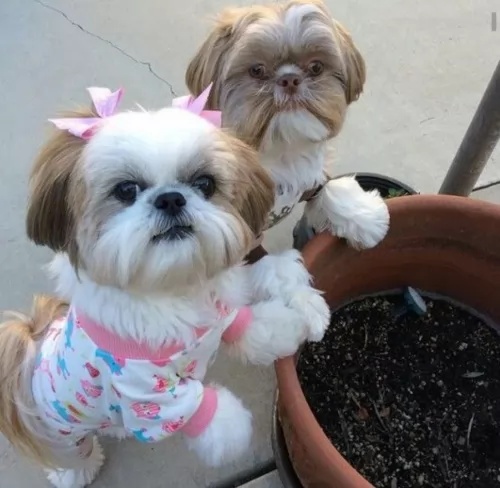 1.Feeding the puppy – this is a toy dog so don’t overfeed. They have a tendency to become obese. Calorie and weight level need to be calculated with any diet you feed. The diet should be high quality with plenty of protein made for toy dogs. Feed the puppy at least 3 times a day, maybe four in very small amounts, never more than ½ cup per day.
1.Feeding the puppy – this is a toy dog so don’t overfeed. They have a tendency to become obese. Calorie and weight level need to be calculated with any diet you feed. The diet should be high quality with plenty of protein made for toy dogs. Feed the puppy at least 3 times a day, maybe four in very small amounts, never more than ½ cup per day.
2.Feeding the adult - this is a toy dog so don’t overfeed. They have a tendency to become obese. Calorie and weight level need to be calculated with any diet you feed. The diet should be high quality with plenty of protein made for toy dogs. Feed the adult once or twice a day in larger amounts than the puppy but never more than ¾ of a cup per day.
3.Points for Good Health - most Shih Tzu’s are hardy with exceptionally good health.
This is a pampered, not high energy dog. However, she still needs playtime, which can be indoors and short walks outdoors every day.
 Serbian Hounds with their short coats are low maintenance. Yes, they do shed throughout the year, and have some seasonal shedding. A good brush twice a week will be adequate for this dog.
Serbian Hounds with their short coats are low maintenance. Yes, they do shed throughout the year, and have some seasonal shedding. A good brush twice a week will be adequate for this dog.
Check your Serbian Hound’s ears and eyes for infection. Also, as you brush him, take note of any new or unusual lumps you come across.
As a medium-sized dog, if you choose to feed your dog kibble, it will need to be according to size, his age and activity levels. Read the labels carefully to make sure you know how to feed your Serbian Hound the best way.
Choose kibble that has a good selection of vitamins and minerals in it. Try and provide your pet with some home made food too and add it twice a week to the dry kibble to give him some variety and a tasty treat.
Boiled chicken, brown rice, sweet potatoes, carrots and spinach are simple foods – good for a dogs digestion. By also adding a bit of raw meat to his food you help him maintain a healthy coat and skin.
As a hunting breed, this dog has a lot of stamina and energy. He is going to require a good deal of exercise every day. Walks are always a good thing but he’ll want more energetic action – runs, ball games and some swimming.
Toys and equipment that can provide him with mental stimulation will be good for him too as he is a mentally sharp dog.